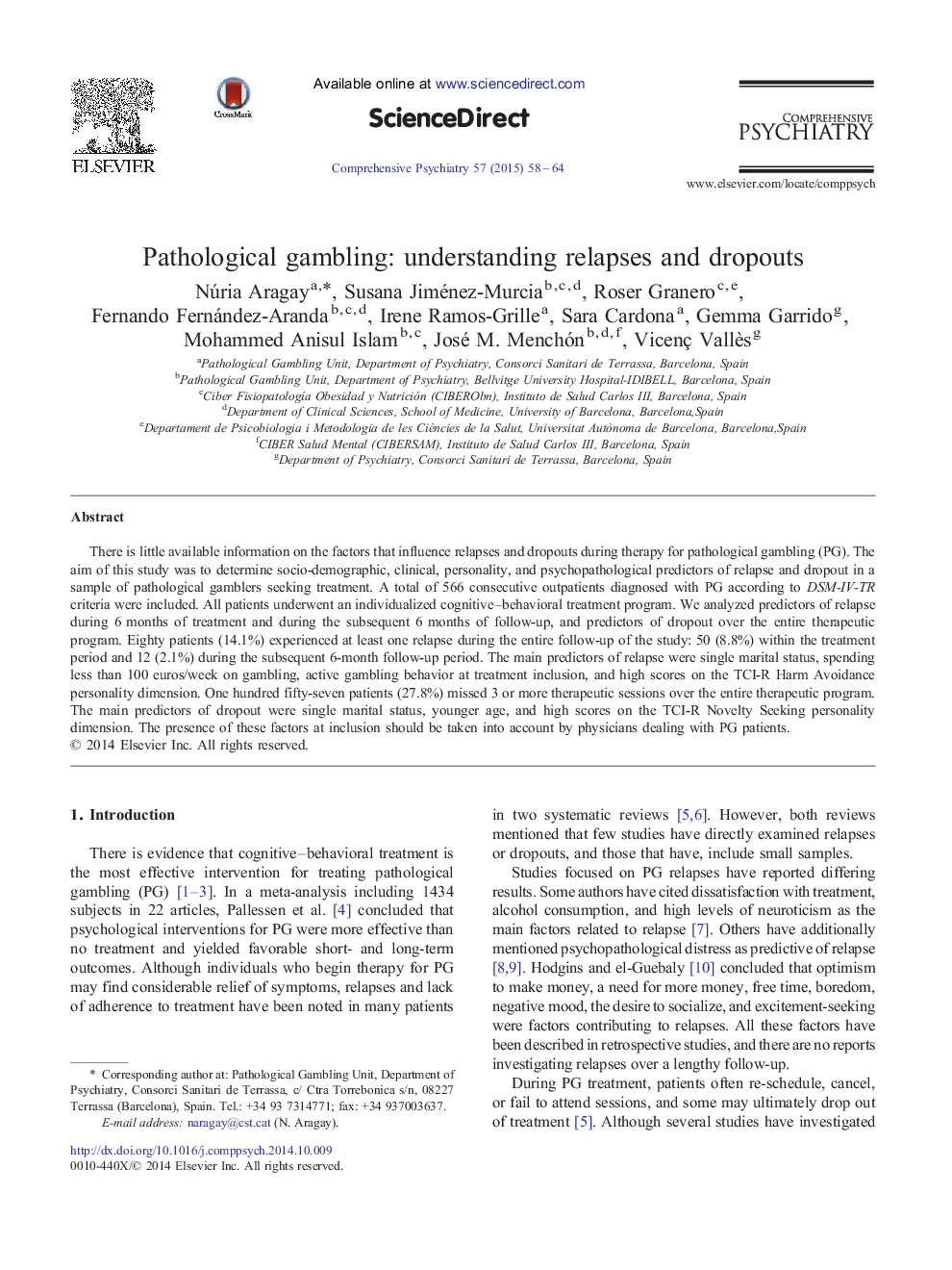| Article ID | Journal | Published Year | Pages | File Type |
|---|---|---|---|---|
| 318159 | Comprehensive Psychiatry | 2015 | 7 Pages |
There is little available information on the factors that influence relapses and dropouts during therapy for pathological gambling (PG). The aim of this study was to determine socio-demographic, clinical, personality, and psychopathological predictors of relapse and dropout in a sample of pathological gamblers seeking treatment. A total of 566 consecutive outpatients diagnosed with PG according to DSM-IV-TR criteria were included. All patients underwent an individualized cognitive–behavioral treatment program. We analyzed predictors of relapse during 6 months of treatment and during the subsequent 6 months of follow-up, and predictors of dropout over the entire therapeutic program. Eighty patients (14.1%) experienced at least one relapse during the entire follow-up of the study: 50 (8.8%) within the treatment period and 12 (2.1%) during the subsequent 6-month follow-up period. The main predictors of relapse were single marital status, spending less than 100 euros/week on gambling, active gambling behavior at treatment inclusion, and high scores on the TCI-R Harm Avoidance personality dimension. One hundred fifty-seven patients (27.8%) missed 3 or more therapeutic sessions over the entire therapeutic program. The main predictors of dropout were single marital status, younger age, and high scores on the TCI-R Novelty Seeking personality dimension. The presence of these factors at inclusion should be taken into account by physicians dealing with PG patients.
